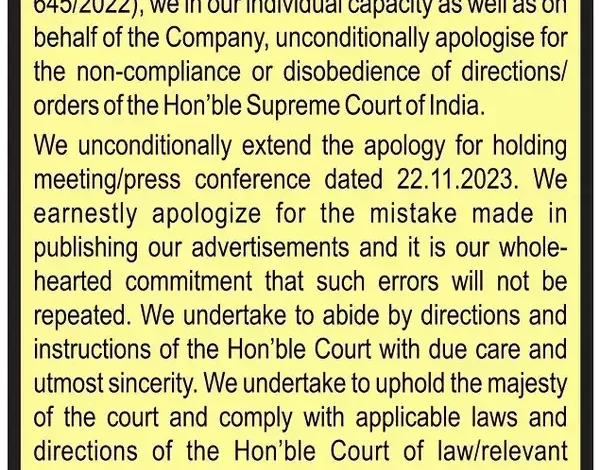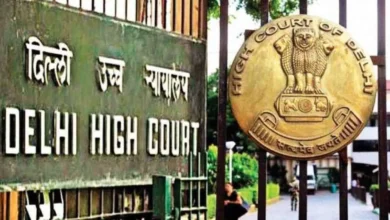Patanjali issues public apology in newspapers, Supreme Court scrutinizes ad size
The Indian Medical Association (IMA) sued Patanjali for making claims in its marketing that its products could treat serious illnesses like diabetes, high blood pressure, and liver cirrhosis

In a recent incident that has drawn the attention of the nation, Patanjali Ayurved Ltd. apologized publicly in 67 newspapers after receiving a directive from the Indian Supreme Court. The court’s investigation into whether the apology was as big as the company’s prior ads sparked discussion about advertising ethics and corporate responsibility.
The Indian Medical Association (IMA) sued Patanjali for making claims in its marketing that its products could treat serious illnesses like diabetes, high blood pressure, and liver cirrhosis. This was the beginning of the lawsuit against the company. These statements were possibly harmful as well as deceptive since they can discourage people from getting the right medical care.
Judge Hima Kohli of the Supreme Court questioned Patanjali’s sincerity of apologies and emphasized the necessity for it to be as noticeable as the original ads. The court was worried that a smaller apology would not properly address the misinformation since it would not reach the same population that was exposed to the deceptive advertisements.
Senior Advocate Mukul Rohatgi, speaking on behalf of Patanjali, said that the corporation had to pay a large amount of money for the apology to be published in newspapers. The court, however, did not back down and demanded a compilation of the ads together with the apologies that went along with them so that their sizes could be directly compared.
There has been a mixed response from the public to this tragedy. Although some people support the Supreme Court’s decision to guarantee that the apology receives sufficient attention, others are dubious about how it will affect the company’s future advertising strategies.
The Supreme Court addressed the Ministries of Consumer Affairs and Information and Broadcasting after the Patanjali case. The court broadened the focus of the matter to encompass the more significant issue of deceptive advertising produced by fast-moving consumer goods (FMCG) corporations. Under Rule 170 of the Drugs and Cosmetics Rules, 1945, it instructed the Union Government to explain a letter sent to all state governments by the AYUSH Ministry instructing them to refrain from taking any action against the advertisement of AYUSH products. By initiating this action, the court is demonstrating its proactive approach to consumer protection and ethical advertising practices, not only against Patanjali Ayurved but also against any FMCG company that might utilize deceptive promotions.
You might also be interested in – ‘Ready to face death penalty’: Baba Ramdev in response to Supreme Court’s warn over Patanjali



